Can Batteries Freeze? (The Cold Truth)
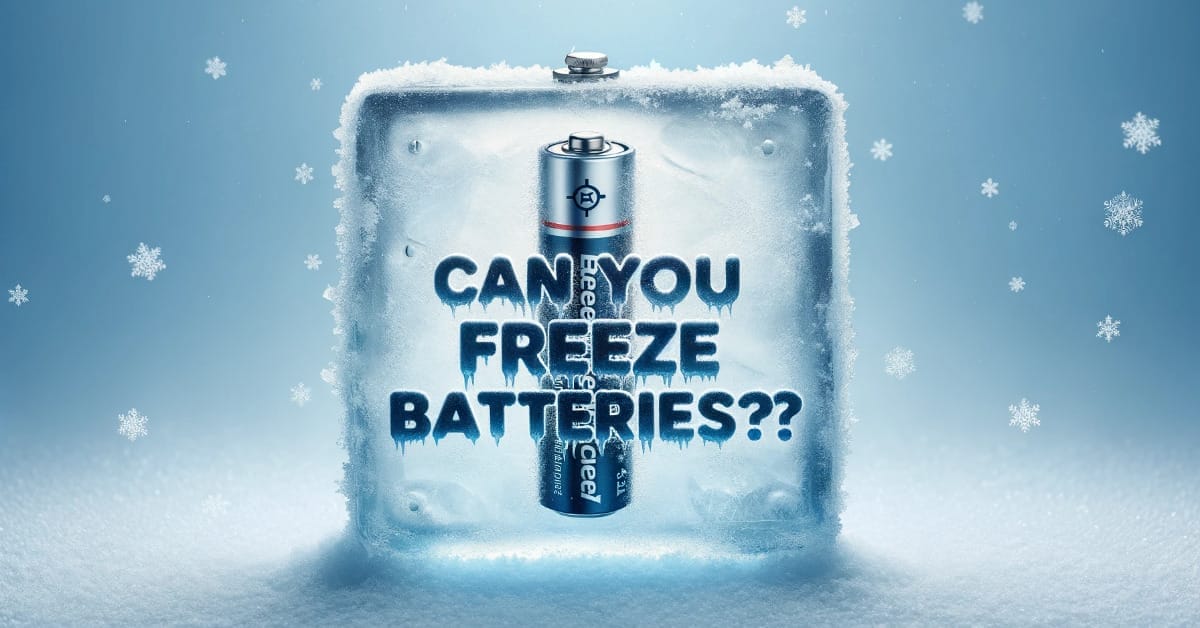
Did you leave your batteries in an outdoor shed in the winter, or are you going for a skiing trip and wondering whether your batteries can freeze?
The short answer is yes, they absolutely can. Most batteries contain water, which can freeze once temperatures drop below freezing. However, not all batteries are created equal; some are better suited for cold weather than others.
In this article, I’ll dive deeper into the effects of extreme temperatures on batteries, including what happens when a battery freezes and how to store your batteries best to ensure their optimal performance.
| Battery Type | Freezing Point | Additional Information |
|---|---|---|
| Lead Acid | A fully depleted lead acid battery will freeze at 32°F (0°C). A well charged lead acid battery will not freeze until temperatures drop to -94°F (-70°C). | |
| Lithium-ion | Lithium-ion batteries do not change their freezing point with charge level. Recommended to remove from service if they expect temperatures below -4°F (-20°C). Can be stored down to -15°F (-26°C) if not being used. | Charging a lithium battery during freezing temperatures can cause damage. |
| Alkaline | Alkaline batteries have a low freezing point of -31°F (-35°C). | If you live in areas where temperatures can drop below this point, it’s possible that your alkaline batteries may freeze. |
| NiMH | NiMH batteries can be stored at low temperatures, even frozen, to slow their self-discharge rate. | Extremely cold temperatures could damage the batteries. |
Understanding Battery Freezing

Understanding the causes and effects of battery freezing can help you prevent damage and prolong your battery life.
When a battery freezes, the liquid inside the battery expands, which can cause internal damage to the battery.
Additionally, water can be separated from the electrolyte, which reduces the battery’s performance. Once the battery is thawed, the damage may be irreversible.
Here are a few key points to understand about battery freezing:
- Freezing temperatures vary depending on the battery chemistry. Lithium-ion batteries can withstand colder temperatures than lead-acid batteries, which can freeze at around -22 degrees Fahrenheit.
- Cold temperatures can also decrease battery capacity. A battery’s ability to hold a charge diminishes as the temperature drops, so it’s important to keep your batteries warm if you need to use them in cold weather.
- Preventing battery freezing is essential to prolong battery life. Avoid leaving batteries in freezing temperatures for extended periods, and store them in a dry, room-temperature environment.
- If you do find that your battery has frozen, do not try to use it until it has thawed completely. You can thaw a battery in a dry, warm area and avoid rapid temperature changes.
Taking precautions to prevent battery freezing ensures your batteries will last longer and perform better.
If you stay mindful of your batteries’ temperature and environment, you can use them for many years.
Do All Batteries Freeze?
Below I’ll discuss different battery types and their potential to freeze.
Alkaline Batteries

Alkaline batteries are a common household battery type typically found in remote controls, flashlights, and other devices.
Alkaline batteries tend to have a low freezing point of -31°F (-35°C). So if you live in areas where temperatures can drop below this point, it’s possible that your alkaline batteries may freeze.
Lithium-Ion Batteries
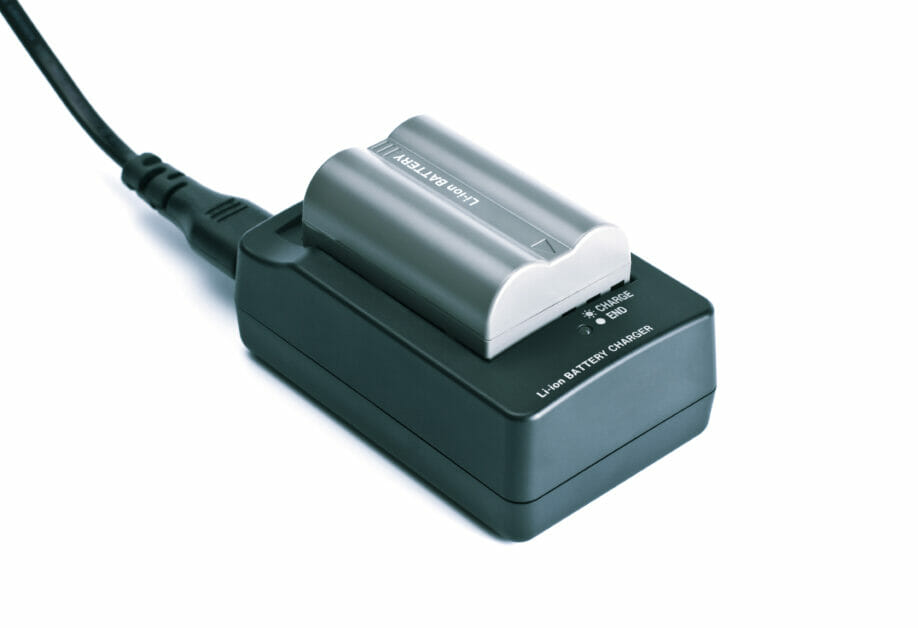
Lithium-Ion batteries are the most common rechargeable battery found in smartphones, laptops, and other electronic devices.
They have a different freezing point of -4°F (-20°C). So if you live in areas with extremely cold temperatures, you may have issues with your lithium-ion batteries.
Lead-Acid Batteries
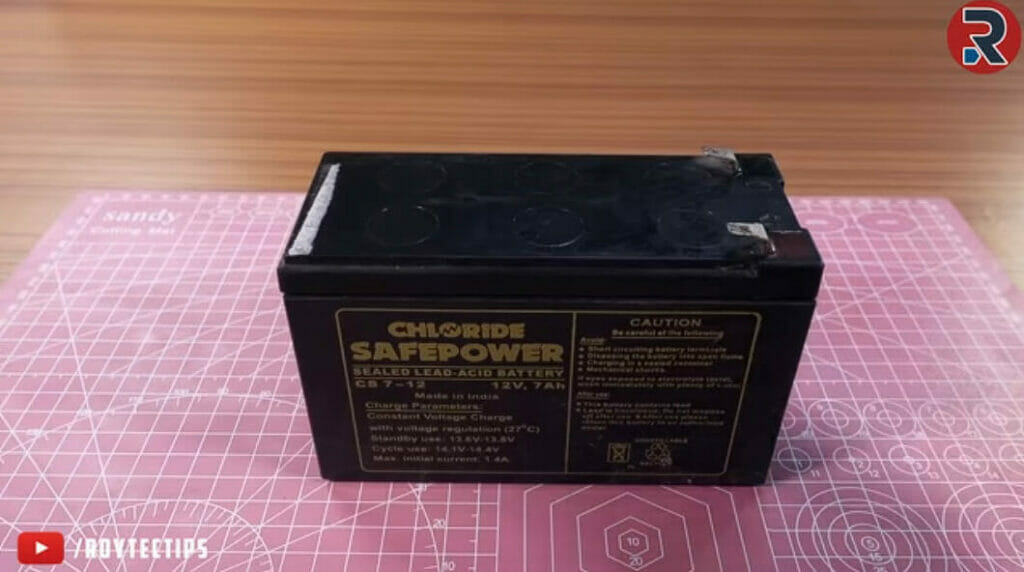
Lead-acid batteries are commonly used in vehicles such as cars, trucks, and boats.
They are more resistant to freezing than other battery types. However, if the battery is not fully charged, the electrolyte solution inside can freeze and cause damage to the battery’s internal structure.
That said, while all batteries can freeze under certain conditions, the specific freezing point varies based on the battery type.
It’s important to remember this during the colder months to prevent damage to your devices and gadgets.
When Batteries Freeze: What Happens?
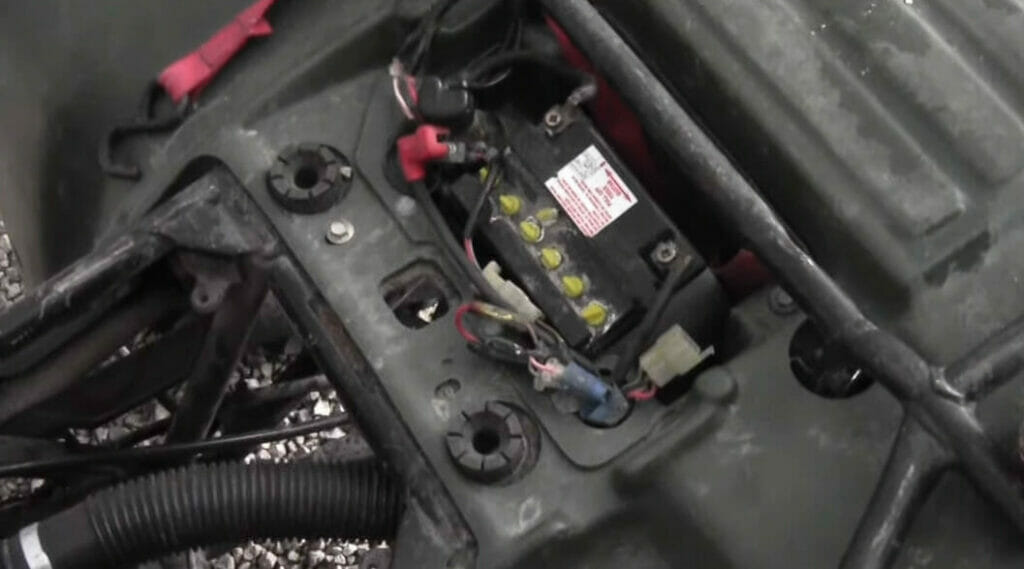
The short answer is that their performance and lifespan can decrease when batteries freeze.
Here are a few things to keep in mind about what happens when batteries freeze:
- When a battery freezes, its casing may crack or rupture, causing electrolyte leakage. Electrolytes are the chemicals that allow the battery to generate an electrical charge, and their leakage can damage surrounding materials.
- Even if a frozen battery doesn’t rupture or leak, its performance can decrease because freezing can disrupt its cell structure. This can cause the battery to hold less of a charge or discharge more quickly.
It’s important to note that different types of batteries may be more or less susceptible to freezing, depending on their chemical composition and design.
Impact of Battery Freezing on Different Devices
| Device Type | Impact of Battery Freezing |
|---|---|
| Smartphone | Decreased performance, the potential for a shutdown |
| Laptop | Potential for shutdown, reduced operating time |
| Car | Difficulty in starting, potential for electrical issues |
| Flashlight | Reduced brightness, shorter operating time |
Why Do Batteries Freeze?
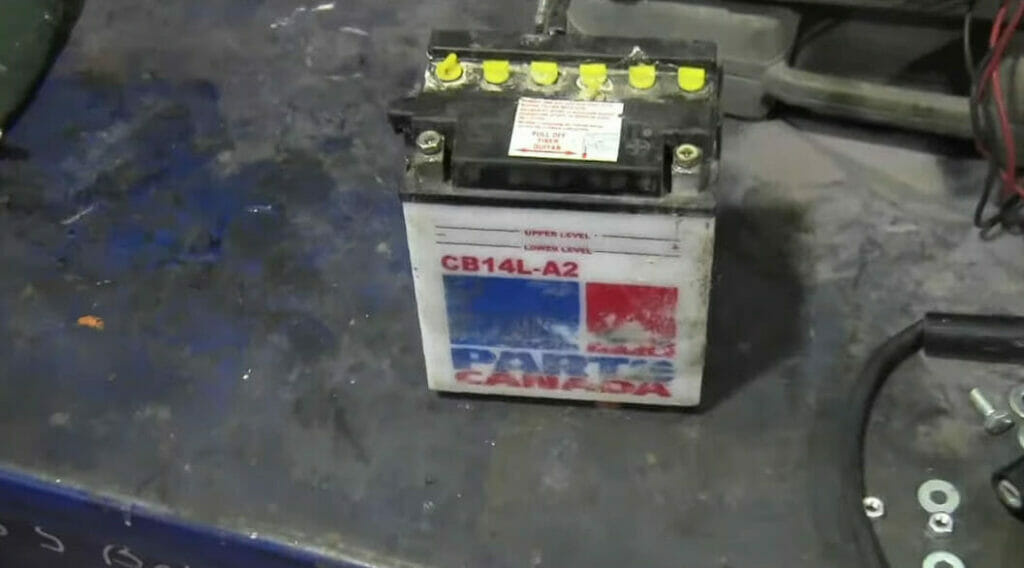
When a battery gets cold, its chemical reaction slows down. This can cause the battery’s voltage to drop, making it appear that your device has a low battery or is running out of power.
In some cases, the voltage can drop so low that the battery can no longer operate your device.
But why do batteries freeze in the first place? One reason is that the liquid inside the battery’s cells can freeze. This liquid, called electrolyte, is a water and sulfuric acid mixture.
When the temperature drops below freezing, the electrolyte can freeze and expand, damaging the battery’s casing or even causing it to rupture.
Another reason batteries can freeze is because of the materials used inside. Some batteries contain a gel-like substance that can freeze and expand in cold temperatures.
This can cause the battery to swell, putting pressure on the casing and causing it to crack.
How to Thaw Frozen Batteries
If you find yourself with frozen batteries, don’t worry! There are a few steps you can take to thaw them properly:
- Remove the batteries from any device they are in. Do not attempt to charge or use them while they are frozen.
- Place the batteries in a plastic bag or container. Be sure to use a leak-proof and non-conductive container.
- Move the container to a warm and dry location. Avoid direct sunlight, a heating pad, or any high temperatures which can damage the batteries.
- Allow the batteries to thaw naturally. Depending on the size and type of batteries, this process can take several hours or overnight.
- Once thawed, check for any leaks or cracks in the batteries.
- Test the batteries in a device to ensure they are functioning properly. If they are not, properly dispose of them.
Note: Not all frozen batteries can be revived, especially if they have been frozen for a long time or have undergone extensive damage.
Always prioritize safety and follow any guidelines or warnings on the battery packaging. Remember to properly dispose of any damaged or unusable batteries and recycle them if possible.
You can keep your devices running smoothly and effectively by taking these steps.
How to Prevent Batteries from Freezing
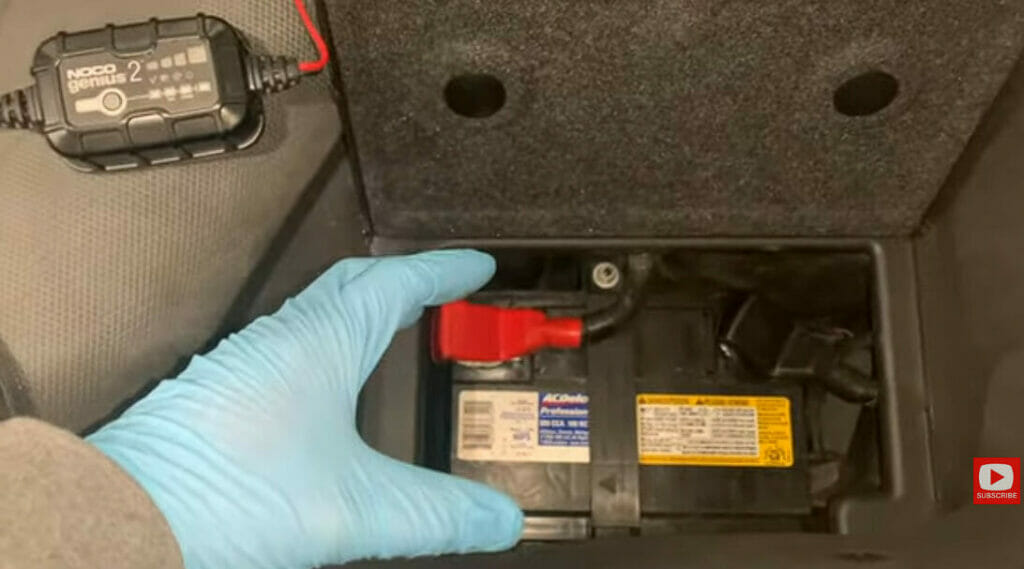
As we’ve established earlier, batteries can freeze when exposed to extremely low temperatures, which can cause permanent damage to the battery and reduce its lifespan.
So, how can you prevent your batteries from freezing? Here are some practical tips:
- Store batteries in a temperature-controlled environment: Keep your batteries in a room that is between 60°F and 80°F (15°C to 27°C) and free from moisture. Avoid storing batteries in the garage, attic, or any other place prone to temperature fluctuations and extreme temperatures.
- Keep the batteries in a protective case: A protective case can add an extra layer of insulation and prevent the batteries from getting exposed to low temperatures. You can buy a case specifically designed for batteries or use a small plastic container or bag.
- Use a battery warmer: A battery warmer is a device that keeps the battery at a consistent temperature, even in extreme weather conditions. It’s a useful accessory if you live in an area with harsh winters or frequently go on outdoor adventures.
- Check the expiration date: Most batteries have an expiration date printed on the packaging. Using expired batteries increases the risk of freezing, leaking, or failing. Always check the expiration date before using your batteries and replace them if they’re past their prime.
- Keep batteries fully charged: The fully charged battery is less likely to freeze than a partially charged one.
By following these simple tips, you can help extend the life of your batteries and prevent them from freezing.
Remember, a little bit of prevention can go a long way in saving you time and money down the road.
References
Studies:
- Temperature Effect and Thermal Impact in Lithium-ion Batteries: A Review. https://www.sciencedirect.com/science/article/pii/S1002007118307536
- Effects of Current and Ambient Temperature on Thermal Response of Lithium Ion Battery. https://www.mdpi.com/2313-0105/8/11/203
- How Does Temperature Affect Battery Performance? https://www.greentechrenewables.com/
Organizations:
- Battery University. https://batteryuniversity.com/
- The Electrochemical Society. https://www.electrochem.org/
Books:
- “Advanced Batteries: Materials Science Aspects” by Robert Huggins
- “Handbook of Batteries” by David Linden and Thomas Reddy
Video References
Tools In Action
AutoBez313
RoyTecTips
Mike Wrecker
Your Home Garage
